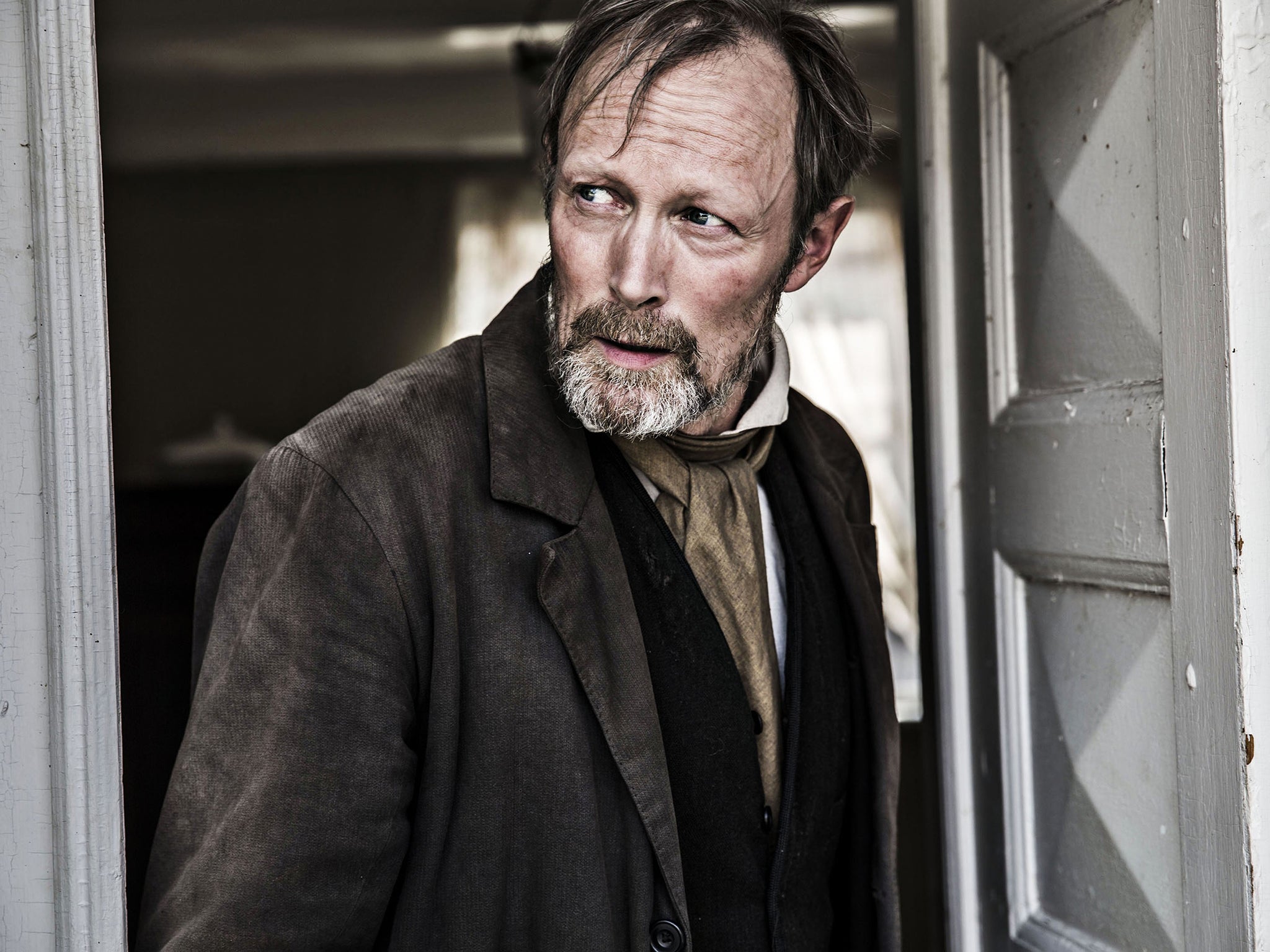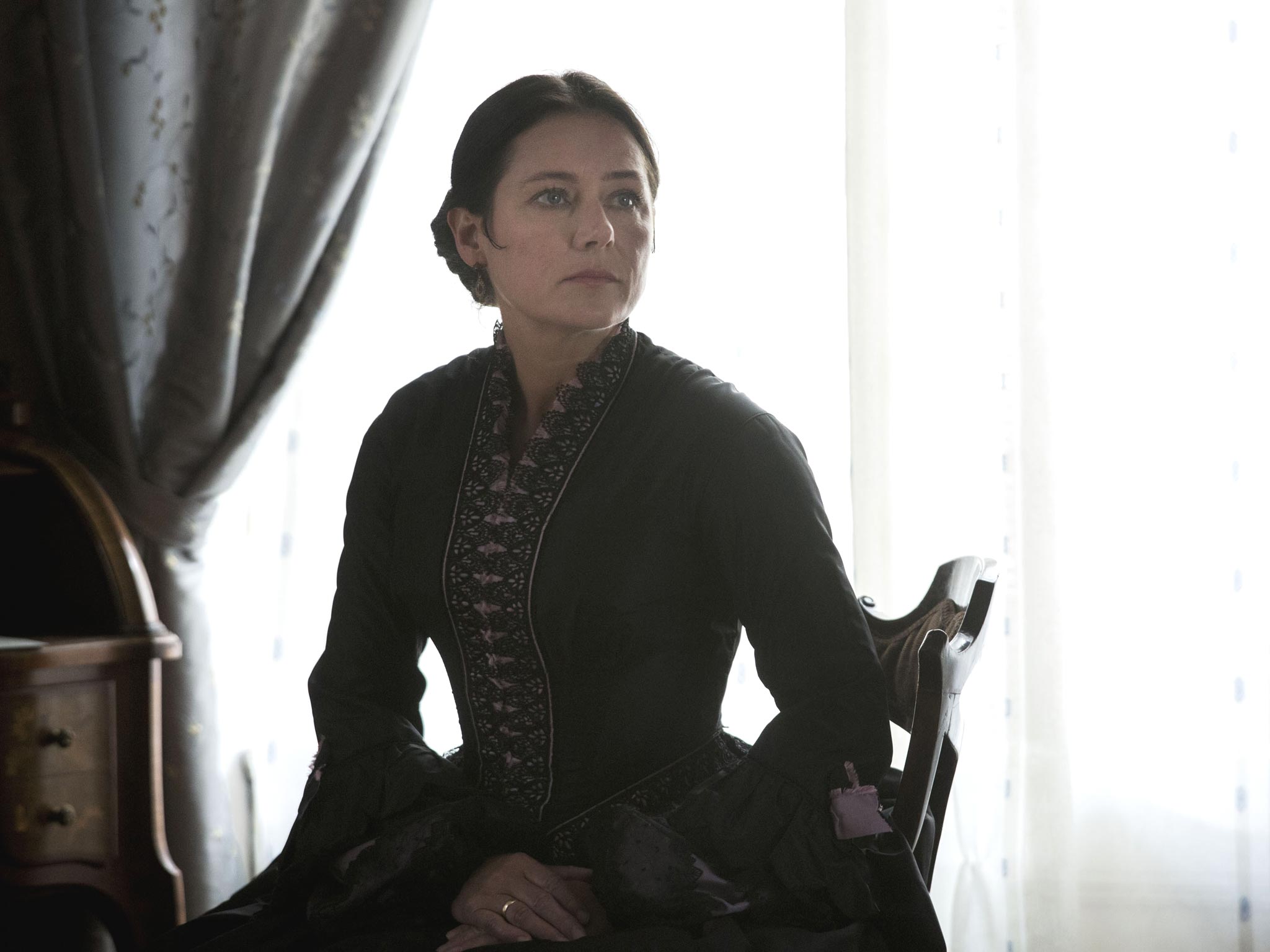BBC hopes Scandinavian drama 1864 can echo success of Borgen and The Killing... and shed light on the Schleswig-Holstein Question
The latest Danish import has provoked anger among Scandinavian historians

There were only three people who ever understood the Schleswig-Holstein Question, Lord Palmerston famously claimed – “the prince consort, who is dead, a German professor, who has gone mad, and I, who have forgotten all about it.”
But the BBC is hoping considerably more will be gripped by its latest Danish import, a sweeping historical saga set against Denmark’s disastrous war with Bismarck’s Prussia, which has already provoked anger among Scandinavian historians.
The Second Schleswig War, which pitted Prussian and Austrian forces against Denmark for control over the duchies of Holstein and Lauenburg, is obscure even to many modern-day Danes.
But BBC4 is hoping the presence of familiar faces from the hit imports Borgen and The Killing will help guide British viewers through 1864, a new £17m period drama tackling the subject.
The eight-part series, which begins this month, reunites a corset-wearing Sidse Babett Knudsen, who played the prime minister in the political drama Borgen, with Pilou Asbæk, spin-doctor Kasper Juul in the series.
Soren Malling, Sarah Lund’s detective partner in The Killing and Lars Mikkelsen, who played Copenhagen mayoral candidate Troels Hartmann in the crime thriller, also appear.

1864 explores how Danish politicians, inflamed with nationalism, threw the country into a war with Prussia which resulted in a crushing defeat. The country lost one-third of its territory and was forced to rebuild a shattered national psyche.
The story is told through two brothers who volunteer for the army. Knudsen plays Johanne Luise Heiberg, the most celebrated actress of her day, who stiffens the resolve of the Danish Prime Minister DG Monrad.
The drama also incorporates cameos from the British prime minister at the time, Lord Palmerston, as well as Queen Victoria.

Watch Apple TV+ free for 7 day
New subscribers only. £8.99/mo. after free trial. Plan auto-renews until cancelled.
ADVERTISEMENT. If you sign up to this service we will earn commission. This revenue helps to fund journalism across The Independent.

Watch Apple TV+ free for 7 day
New subscribers only. £8.99/mo. after free trial. Plan auto-renews until cancelled.
ADVERTISEMENT. If you sign up to this service we will earn commission. This revenue helps to fund journalism across The Independent.
Produced by state broadcaster DR, the series won an unprecedented 67% viewing share in Denmark. But it was condemned by academics and the right-wing Danish People’s Party for depicting the founders of Denmark’s constitution as war-crazed nationalists.
Ole Bornedal, the director, said Britain too could benefit from a similar display of on-screen national humility. “The right-wing said we were rewriting history. They thought it was an attack on them. The Danes, like the British, feel we are the best. Denmark has always had this very secluded, cosy, roses growing up walls, blue water, naïve innocence.”
Bornedal said: “One nation is not better than another. The Brits are not God’s chosen, King Arthur people. A certain kind of humility would be suitable for both the British and the Danes.”
Asbæk, who plays a debauched, aristocratic war veteran, added: “The Germans are presented as the evil ones but the Brits are baddies too. You should have come and helped us.”
1864 also prompted a national debate over historical bestiality. In one scene, group of drunken aristocrats depart to the stables and force themselves upon a cow. Malling, who appears in the scene, said: “The right-wing said this is not possible. ‘They did not fuck cows in the 1860s’. But when my upper-class character whips a gypsy and almost kills him, they said ‘oh yes, that’s normal.’”
The cow scene was filmed at an old Danish Barony castle. Bornedal said: “We wanted to show the sheer decadence in the countryside. We told the Baroness we were about to film this controversial scene in her stables. She was dressed in all her jewels and she said ‘That’s what we did in the 19th century, everyone knows that.’”
BBC4 has already snapped up another DR series, a contemporary economic crime thriller called Follow The Money, in which a police detective uncovers a web of shady dealings surrounding an energy company after a body is found near a wind farm.
What was the Schleswig-Holstein Question?
The battle for control over the Duchies of Schleswig and Holstein led to three wars and endless head-scratching from Lord Palmerston through to today’s GCSE history students.
The duchies had been ruled by the kings of Denmark. But 1848 witnessed an uprising by the majority German population, seeking independence from Denmark and to join up with the German Confederation.
Prussia intervened, driving Denmark’s troops from Schleswig-Holstein during a 3-year skirmish.
But the Confederation returned Schleswig-Holstein to Denmark under an 1852 treaty under condition that Denmark did not seek to further its claim over the duchies.
King Christian IX of Denmark violated the agreement with an 1863 constitution seeking to reintegrate the territory, paving the way for the Second Schleswig War.
This time Austria and Bismarck’s Prussia crushed Danish military resistance, ending Denmark’s claims to Great Power status.
Administration of Schleswig-Holstein then became the pretext for the 1866 Austro-Prussian War, resulting in Prussian dominance.
After Germany’s defeat in World War I, the Danish majority area of Northern Schleswig was finally unified with Denmark after two plebiscites organised by the Allied powers.
Join our commenting forum
Join thought-provoking conversations, follow other Independent readers and see their replies
Comments